Senior Day speaker talks career, country and finding one’s calling
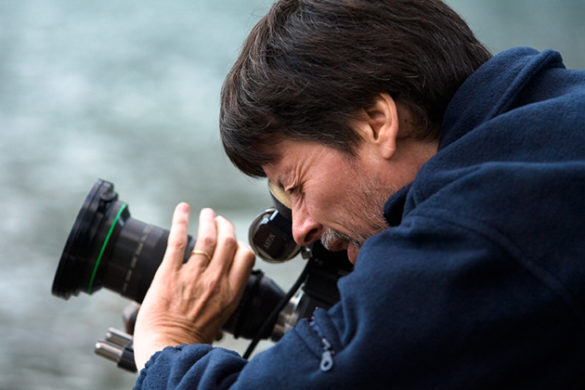
Ken Burns, America’s historian, loves telling the stories of our country. That love, however, hasn’t kept the documentary filmmaker from shining a bright light on the country’s darker moments in the four decades of his career. With films ranging from The Civil War to The Roosevelts and now The Vietnam War, he’s given us a front-row seat to America’s most challenging times and helped us better understand the country we live in.
Losing his mother at an early age—“11 and three quarters,” he said—gave him a focus that has lasted through his life. Burns, Vanderbilt University’s 2017 Nichols-Chancellor’s Medalist and Senior Day speaker, took a break last month from editing his upcoming film, Country Music, to talk with MyVU and share his insights on filmmaking, where America stands today, and some contemplative thoughts for seniors on the cusp of Commencement.
Ken Burns’ career as a storyteller had a visual start. He remembers standing next to his father—an amateur still photographer—in the basement darkroom of their tract house in Delaware, watching pictures come to life.
“He was a cultural anthropologist,” Burns said of his scholar father, who studied how people organized and shaped the world around them and who in turn were shaped by their world. “He loved movies, and he took us to movies all the time during those years when my mom was dying from cancer.”
She would die just before Burns’ 12th birthday, and by then he had the idea that he wanted to be a filmmaker and tell stories. Like any boy his age, he thought he would end up in Hollywood making the kinds of films he had watched with his father. “I wanted to be glamorous, a poet. But [rquote]I realized that there was as much drama in what is, and what was, as there is in anything we could make up,”[/rquote] he said.
His father joined the faculty of the University of Michigan, and Burns spent his formative years steeped in the counterculture atmosphere of Ann Arbor in the 1960s and ’70s. He enrolled at Hampshire College, then a brand-new alternative college in Amherst, Massachusetts, in 1971 and took classes under legendary documentarian Jerome Liebling.
“I just fell under his spell,” Burns said. “It was almost like a medieval master/student kind of thing, and I realized the documentary was the way I needed to go.” He also realized he had a “completely untutored but abiding love” of American history.
In 1974 he produced for his senior thesis a film for Old Sturbridge Village—“think Colonial Williamsburg of New England,” Burns said. In 1981 came his first film, Brooklyn Bridge, which was nominated for an Academy Award.
Since then there’s been a steady stream of Ken Burns-branded stories of American history, and he has projects planned out through the 2030s.
Burns said that if someone had told him back in 1974 that today, at 63, he would still only be making films about history, he would not have believed them. “But I did begin to suspect even then that my interests had merged—being a filmmaker, making documentaries and focusing on American history. It wasn’t until my third or fourth film that I realized—this is it, this is what I do,” he said.
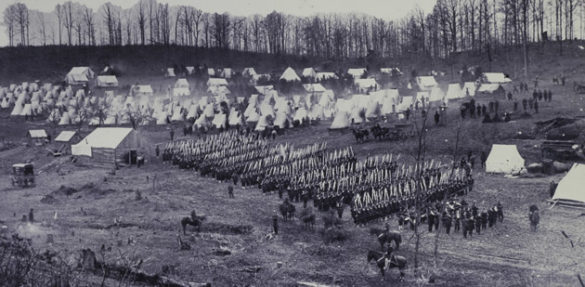
In 1990, Burns’ groundbreaking miniseries The Civil War introduced Americans to his thoughtful style of storytelling, showcasing his now-trademark technique of slow pans of still photos paired with narration and haunting melodies. His late father-in-law, a psychologist, told Burns that in bringing U.S. history to life, he was trying to wake the dead. “I make Abraham Lincoln and Robert E. Lee come alive,” he said. “But who do you think I’m really trying to wake up? And I know that what he’s talking about is my mom.”
In that vein, Burns sees history not as a dry recitation of facts and timelines, but more of an emotional archeology. “[lquote]History is the story of us,” he said.[/lquote] “You can look at the Civil War as the traumatic event in the childhood of our nation, and we have to keep going back and processing that.”
Burns points out that when the country was founded, Thomas Jefferson, the author of the Declaration of Independence, coined the phrase “all men are created equal” while at the same time owning more than 100 slaves. In that dichotomy, Burns said, lies the perennial questions of our nation: What is our history? How do we celebrate ourselves and at the same time reflect the complexities of who we are?
Historian Shelby Foote said the Civil War happened because Americans failed to “do the thing we really have a genius for, which is compromise. … Our whole government’s founded on it. And, it failed.” Burns sees a corollary between Foote’s comments about compromise in the mid-1800s and the struggles in the country today.
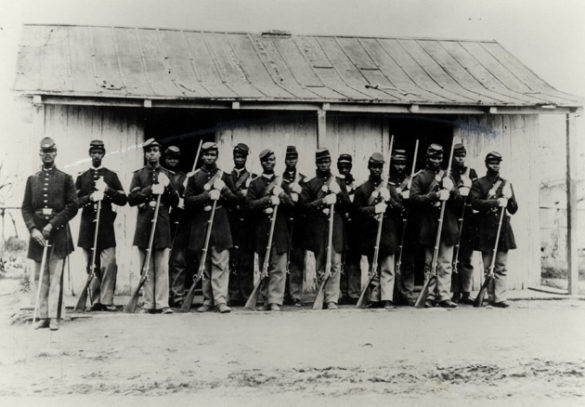
“This kind of all-or-nothing stakes that issued from the fire-eaters in the South and the rabid abolitionists in the North—that lack of compromise—led to this incredible war. When that broke down, we murdered each other,” he said. “We killed more than 750,000 of our own people over the question of ‘What is freedom?’ And everything since then has been a consequence of that: military budgets, the tension between state’s rights and a strong federal government, regional differences—and race, race, race. It’s all still right there.”
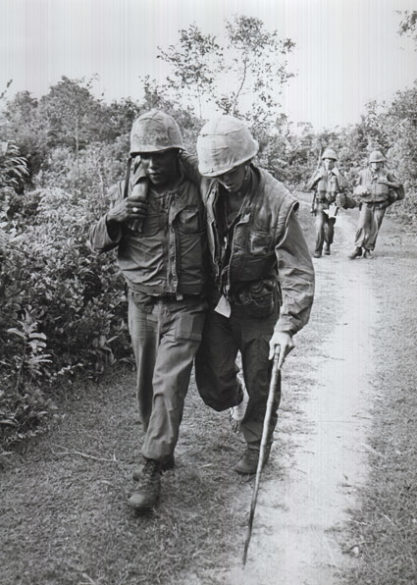
Burns is now working on a film about the Vietnam War, the country’s most divisive period since the Civil War. “We caught something during the Vietnam War—like a virus—and we are still suffering from the effects of that virus today,” he said. “I’m hoping my film is a bit like a vaccination—that it exposes you to a little bit of the disease to permit you to go past it and heal from it. “
Burns developed the story line for The Vietnam War in the same fashion he always does. “We set off wanting to put our arms around as much of the story as we can. It’s like making maple syrup,” he said. “It takes 40 gallons of sap to make a gallon of syrup. That is our process.
“We are writing good words and we are collecting footage and shooting images and doing interviews, unconcerned with whether it fits into some particular part of the script,” he explained. “Then we have to come together, like the House and the Senate, and reconcile the two different things.”
And then there’s serendipity. In 2014, before a speech at Kent State University, Burns toured the school’s May 4 Center, which commemorates the four students killed during an antiwar protest on May 4, 1970.
“This tiny little museum just blew me away,” he said. “In our original script, we had one line about Kent State. I came back and said we’re going to make the Kent State story 10 minutes in our film. That’s an example of where one line, written beautifully, became three pages.”
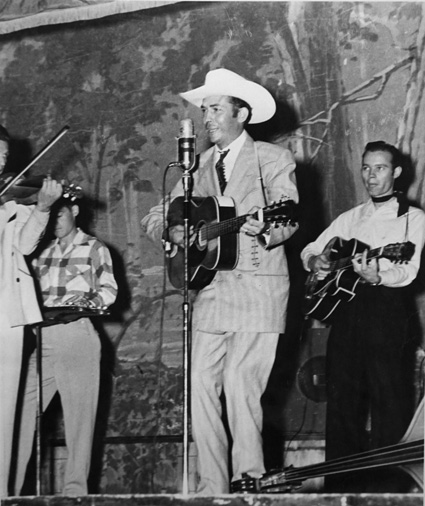
Burns said that his work in documentaries and with the Public Broadcasting System allows him just that kind of creative freedom. “There’s no one saying make it longer, make it shorter, make it more sexy. Working with PBS allows me to deliver the director’s cut to viewers every time. So if you don’t like my film, it’s all my fault, and that’s always how it should be,” he said.
Burns creates his documentaries in an 1837 Gothic Revival house in Walpole, New Hampshire, a small town he has called home for 38 years. “In this house are upwards of 40 people a day working single-mindedly to make these films better,” he said. “And I don’t like to put my head down on the pillow at night if I haven’t made the film better.”
Fully realizing the good fortune to find his calling—and reach such success—at an early age, Burns acknowledges the terror that graduating seniors often feel. “There’s a kind of wonderful and terrifying sweet spot that happens as you graduate from college. You’re at the end of your immortal adolescence and the beginning of a very mortal adulthood. In that moment, possibility happens,” he said.
“The only advice I can give sounds like a platitude—you have to know who you are and what you want to do. Ask yourself: Who am I? Sound the question over and over again, unflinchingly. Of course the inevitable snags will arise, and you will have to persevere, because nothing is handed to you. You will find in that effort, in that work, salvation.”
For Burns’ complete filmography, visit kenburns.com/the-films.